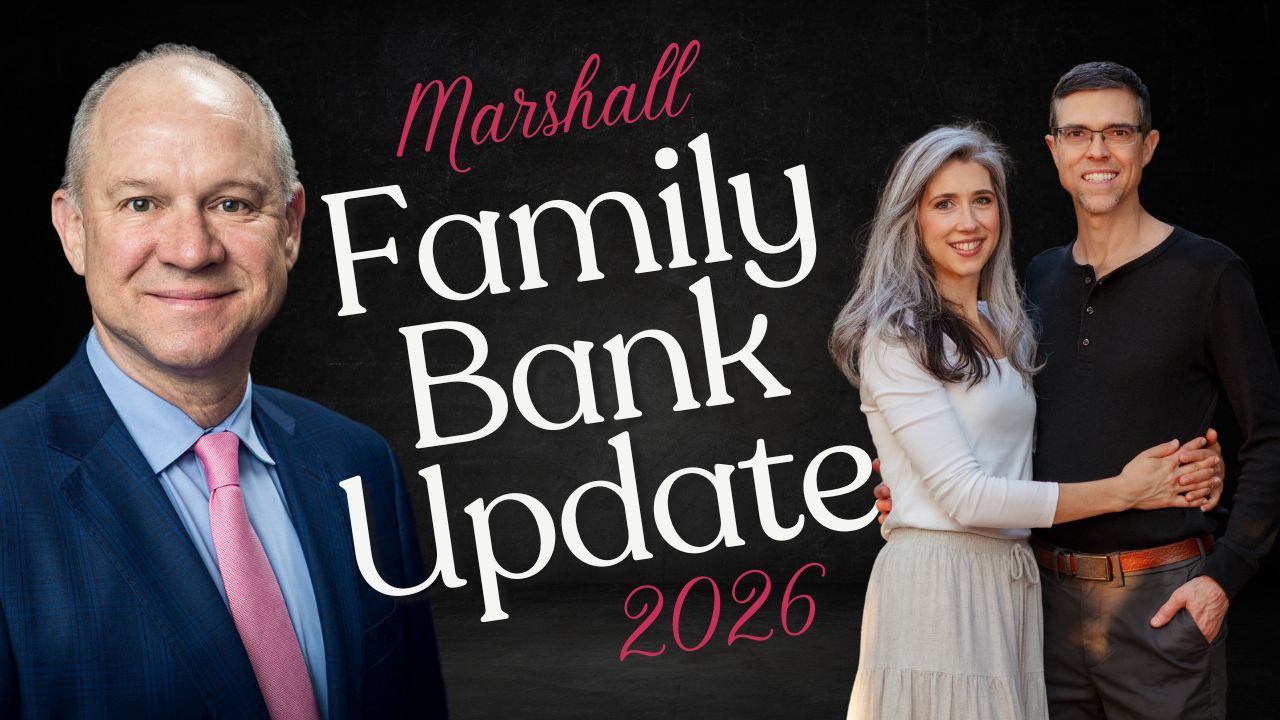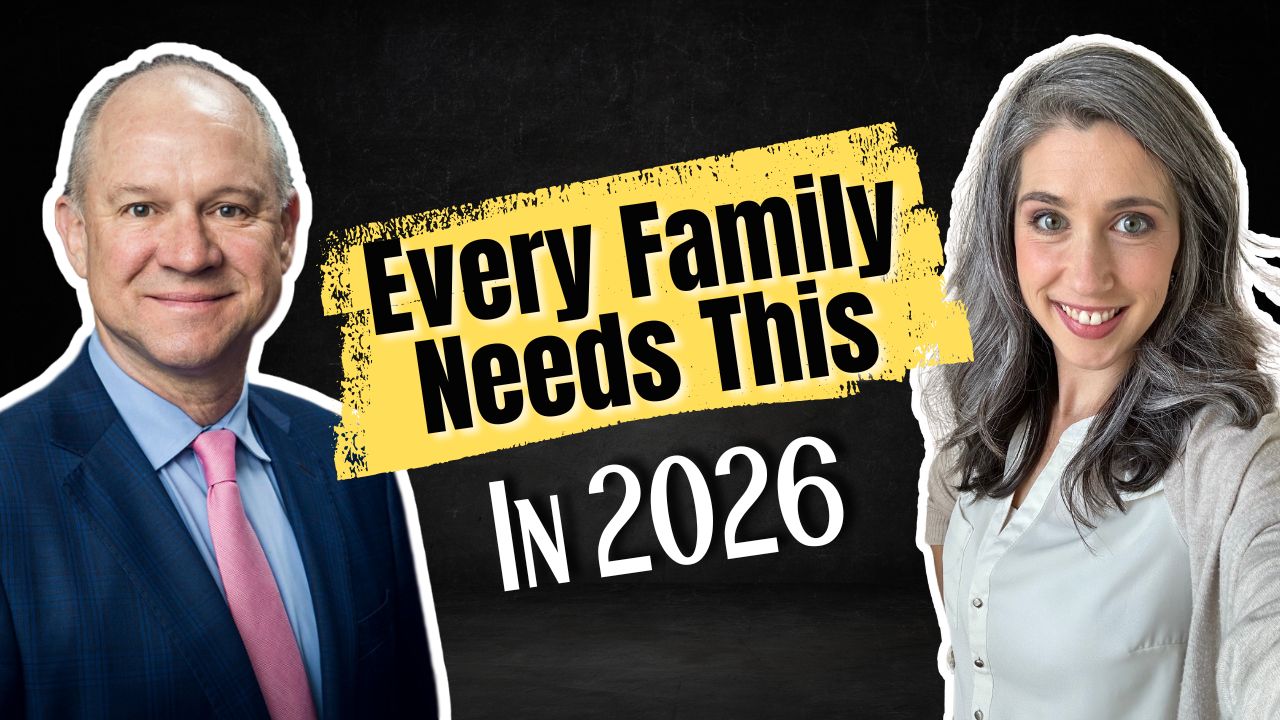
Can You Deduct Life Insurance Premiums? The Truth Every Business Owner Needs to Know
Recently, Bruce shared a story that perfectly illustrates unexpected life challenges—his basement flooded, turning a peaceful Easter weekend into an emergency cleanup session. Just as unexpected problems can flood your home, unanswered financial questions can flood your business strategy, especially questions like: “Can you deduct life insurance premiums?”
Tax questions, much like sudden home repairs, can disrupt your carefully planned financial landscape. Whether it’s water damage or unclear tax regulations, not addressing the problem can lead to costly mistakes down the road. Today, Bruce and I aim to clear up one of these significant financial uncertainties for business owners.
Podcast: Play in new window | Download (Duration: 55:39 — 63.7MB)
Subscribe: Apple Podcasts | Spotify | Android | Pandora | Youtube Music | RSS | More
Table of Contents
Why Understanding Life Insurance Deductions Matters
The question “Can you deduct life insurance premiums?” isn’t just a minor tax issue—it’s central to building an efficient, effective, and robust financial strategy. Life insurance policies are powerful financial tools that, when used correctly, can significantly enhance your financial well-being. However, misunderstandings about their tax implications can lead to missed opportunities or even costly errors.
In this detailed article, you’ll gain clarity regarding the question “Can you deduct life insurance premiums?”, the rationale behind IRS rulings, practical and legitimate strategies to indirectly achieve similar benefits, and the pitfalls to avoid in your quest for tax efficiency. By mastering these concepts, you’ll be well-equipped to incorporate life insurance intelligently into your broader financial planning strategy.
Understanding the Deductibility of Life Insurance Premiums
Can You Deduct Life Insurance Premiums
Bruce frequently encounters confusion among business owners about deducting life insurance premiums. Let’s clear this up immediately: in most cases, you cannot directly deduct life insurance premiums from your taxes if the business owner benefits directly from the policy. The IRS views this scenario as lacking genuine “economic substance,” as the policyholder ultimately recoups these premiums through a tax-free death benefit, meaning there’s no real economic loss to justify a deduction.
The Supreme Court’s Stance and Its Implications
Bruce highlighted a crucial Supreme Court ruling that set clear boundaries for tax deductions related to life insurance. This landmark decision explicitly stated that deducting premiums or interest on life insurance loans is generally not permissible when the insured party directly benefits. The reasoning is straightforward: since you or your estate will eventually receive these premiums back in the form of a tax-free death benefit, the premiums do not represent an actual financial loss or expense that justifies a tax deduction.
Understanding this ruling can save you from potentially costly mistakes and help you align your tax strategies with IRS expectations.
Strategic Ways to Indirectly Deduct Premiums
Despite the restrictions, Bruce and I discussed legitimate and strategic methods to effectively reduce taxable income and indirectly finance life insurance premiums:
- Employing Family Members: Bruce pays his father for legitimate business-related marketing tasks. As his father falls into a lower tax bracket, this transaction reduces Bruce’s taxable income and generates additional cash flow, indirectly supporting life insurance premium payments.
- Paying Your Children: Another powerful strategy is employing your children within your business. For 2024, each child can earn up to approximately $13,500 without paying federal taxes due to the standard deduction. This method simultaneously offers tax savings for your business and allows your children to fund life insurance premiums or other personal expenses, effectively creating tax advantages for your family as a whole.
Both approaches leverage legal IRS provisions designed to help businesses operate efficiently and strategically.
Avoiding Short-Term Tax Mistakes
Bruce and I firmly advocate against short-term, reactionary tax strategies. An important financial principle to remember is not letting “the tax tail wag the dog.” It might seem beneficial initially to make large unnecessary purchases—like expensive equipment—solely for tax deductions. However, such actions often negatively impact your long-term profitability and financial health.
Always prioritize genuine business needs and long-term strategic value over immediate tax relief. This principle ensures sustained profitability and a stronger overall financial foundation.
Contracts vs. Accounts: Ensuring Long-Term Certainty
One critical insight Bruce shared is distinguishing between financial contracts and financial accounts. Accounts, such as retirement and brokerage accounts, remain vulnerable to future tax code changes. In contrast, life insurance policies are binding contracts that offer stability and certainty. Once established, their terms cannot be altered by future tax legislation.
This distinction is crucial for long-term tax and financial planning, providing predictable financial outcomes despite an unpredictable tax environment.
Navigating Complexity with Professional Help
Given the complexity of tax regulations and the frequent changes in IRS rules, partnering with knowledgeable tax professionals and life insurance strategists is invaluable. Bruce and I encourage every business owner to seek professional guidance regularly to ensure compliance, optimize strategies, and avoid costly errors. Expert advice helps you stay informed, proactive, and prepared for any tax law changes, ultimately securing your financial future.
The Strategic Power of Life Insurance Premiums
Returning to our core question: Can you deduct life insurance premiums? Direct deductions are typically disallowed, but savvy business strategies involving legitimate expenses—such as hiring family members or employing your children—can help reduce taxable income. This frees additional funds to support your life insurance strategies effectively.
Additionally, the intrinsic advantage of life insurance policies as stable financial contracts ensures long-term financial certainty in a shifting tax environment. Understanding these nuances positions you to utilize life insurance strategically, maximizing your long-term financial success and stability.
Book A Strategy Call
Are you ready to take control of your finances and legacy? We offer two powerful ways to help you create lasting impact:
- Financial Strategy Call – Discover how Privatized Banking, alternative investments, tax-mitigation, and cash flow strategies can accelerate your time and money freedom while improving your life today. Let us show you how to align your financial resources for maximum growth and efficiency. Book a Strategy Call with our team today.
- Legacy Strategy Call – If you want to uncover your family values, mission, and vision, and create a legacy that’s about more than just money, we can guide you through the process of financial stewardship and family leadership. Save time coordinating your family’s finances while building a legacy that lasts for generations. Book a Legacy Strategy Call to learn more about how we can help.
We specialize in working with wealth creators and their families to unlock their potential and build a meaningful, multigenerational legacy.
Marshall Family Banking System Case Study: In-Force vs Original Illustration (Part 6)
The moment we realized “liquidity” isn’t a theory Thirteen years ago, Lucas and I thought we were being responsible by storing a lot of our capital in gold and silver. It felt safe. It felt timeless. It felt like the kind of move people make when they’re thinking long-term. And then we needed cash. Not…
Financial Strategy for Families in 2026 and Beyond: A Framework for Uncertain Markets
The “Clean Slate” That Changes Your Decisions Every January, Bruce and I have this running joke: as a society, we collectively decide that January 1 magically flips a switch—life will be calmer, more organized, more intentional. Bruce thinks it’s strange. (He’s not wrong.)I love it. I love a clean slate. A fresh start. A targeted…




